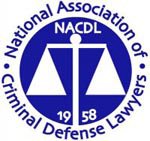1. Is an undergraduate degree in political science a disadvantage when seeking to pursue non political related law fields, such as entertainment law?
No. Really, your undergrad choice has little to do with your practice area, unless you want to be a patent lawyer then you have to have a science degree. I’ve had other people ask and I always suggest a good base of social sciences (history, econ, poli sci, philosphy etc) and English. You write a lot as a lawyer.
2. What are the main duties of an entertainment lawyer?
On one hand contracts or “transactional” work – drafting and preparing contracts, licenses and agreements for movies and film projects. The other part is litigation, or suing people in court for when people break contracts, deals go awry, or someone gets hurt.
3. How many hours does an entertainment lawyer work per day?
8-12 probably. Bigger firm lawyers bill 1,800 to 2,600 hours per year, and you can really only bill about 2/3 of your working time. In our case, we own our own practice, so we not only have to bill time but we have to spend time marketing and getting our name out in the community.
4. What is the best part of practicing entertainment law? the worst?
Best is doing legal work (don’t be confused, it’s still legal work and largely the same type of paperwork you would be doing for a company), but with creative, dynamic people who are making fun things happen and working on projects that other people watch, listen to and enjoy. We get to hear and see projects long before they are released, and can often give feedback and input that shapes the project in small ways.
Worst part is a more limited market to pool clients from and until you’re one of the top lawyers who can charge $600-1000/hr and turn away clients, you’re left with a lot of clients in development who have insufficient financial backing to afford you on an hourly basis. You end up “investing” a lot of time with potential clients who are solid but never get that big offer.
Until you get a superstar client base (and probably after) you will need to have a broader practice to pay the bills – I’ve met sports and entertainment lawyers who pay the bills with corporate law,commercial litigation, criminal defense, personal injury and even real estate law. I was able to meet (super wealthy) baseball agent Scott Boras while in law school and he told the group of us that he didn’t make enough money being an agent for the first EIGHT years he did it. He survived by using his neuroscience PhD and JD to do plaintiff’s side birth defect medical malpractice litigation.
5. What advice would you give to an incoming law student looking to pursue entertainment law?
A. Learn the industry (or industries) early on, both through reading and trying to get involved. If you want to do film work then intern at a studio (or even a distributor) for at least a summer to see what goes on from the inside. If you want to do music, intern at a label (preferably in A&R or distribution). The more connections you make early on the better, since entertainment law jobs are scarce. Read Variety, Hollywood Reporter, Billboard, etc. to learn the industry issues, identify key players and keep abreast of trends.
B. Go to the best law school you can, and try and find ones with entertainment coursework. Most importantly for curriculum is to take copyright, trademark (and perhaps patent) – intellectual property is the backbone of the entertainment world because it is what they deal in: the rights to images, performances, ideas and music.
7. What schools do you recommend for entertainment law?
Look for a strong intellectual property curriculum. My default advice on law school is to go to the best one you can – 6 more months of LSAT preparation can change the course of your career.
8. How many years does it take to become a lawyer?
About seven years in America. 4 for undergraduate program (3-5 for many people), 3 for law school.
9. Where can I find an internship?
Networks, studios and record labels offer internship programs for undergraduate and law students. Take advantage of those programs to get an “in.”
10. Is there a high demand for entertainment lawyers?
If you’re good at what you do and dedicated to breaking into entertainment law there are certainly ways to do it (start with internships). It’s a small market but if you can get a few performers to work with it can grow from there.


